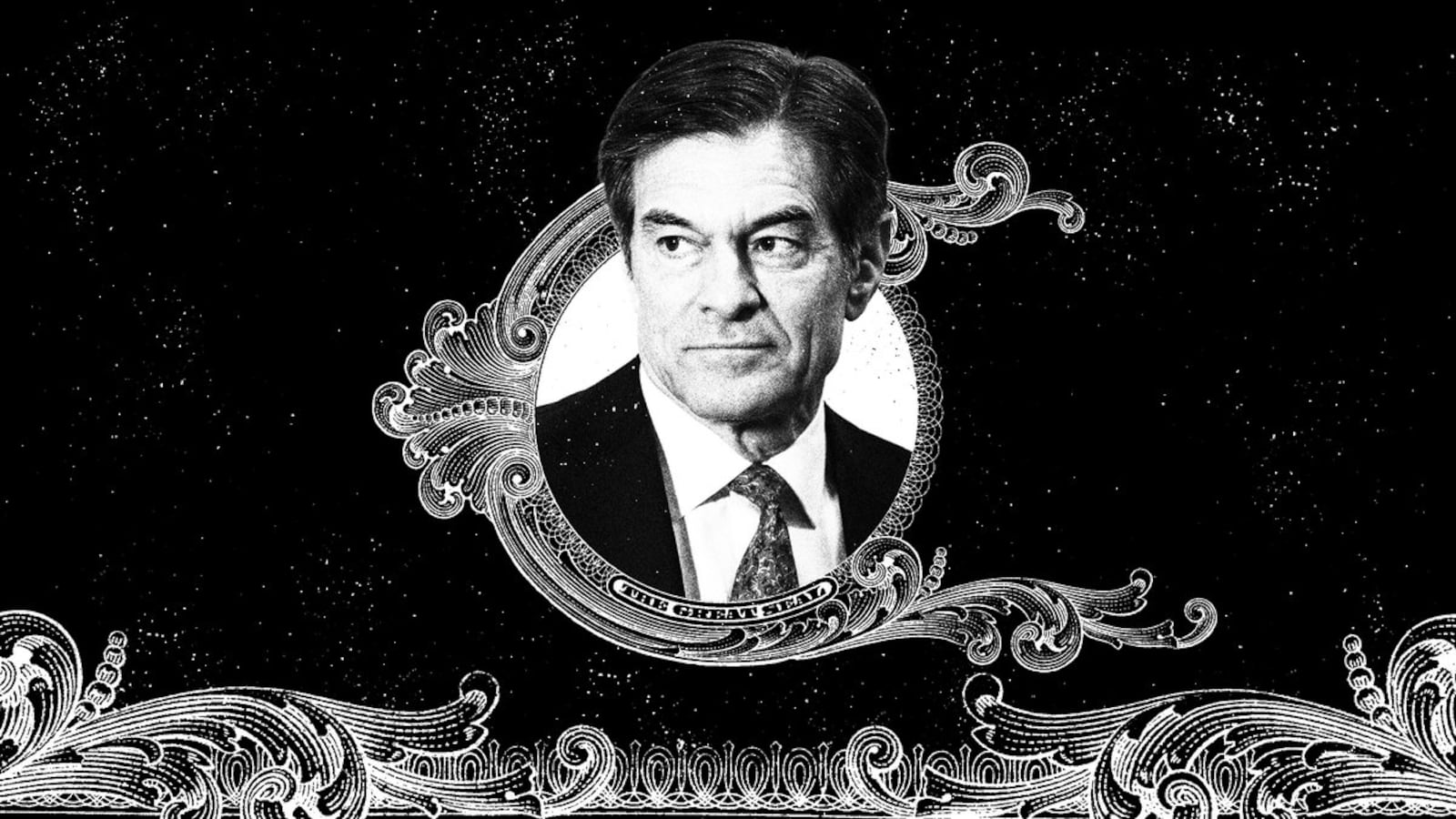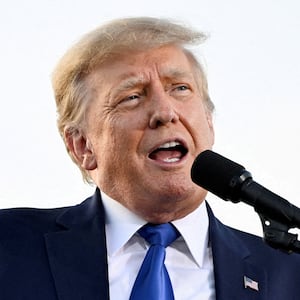Pay Dirt is a weekly foray into the pigpen of political funding. Subscribe here to get it in your inbox every Thursday.
Celebrity doctor and Republican Senate candidate Mehmet Oz has plenty of personal wealth to help fund his upstart campaign. And while the TV doctor might be a political neophyte, his fundraising operation has incorporated a sophisticated technique—what one expert described as “legalized money laundering.”
Like so many aspects of today’s campaign finance system, it traces back a decade—to the Supreme Court’s watershed Citizens United decision.
The Oz setup involves a somewhat confusing super PAC, which has a “dark money” nonprofit twin. The super PAC has raised more than $4 million, including a donation from the nonprofit.
That pairing was made possible thanks to Citizens United, which gave rise to super PACs—political committees that can raise unlimited amounts of money.
Brett Kappel, campaign finance specialist at Harmon Curran, explained the arrangement.
“The Supreme Court’s Citizens United decision allowed corporations, including nonprofit organizations, to make unlimited contributions to Super PACs, which then could spend those funds on independent expenditures supporting or opposing candidates,” Kappel said.
But where super PACs have to disclose their donor information, nonprofit organizations don’t. That gives donors a layer of anonymity—instead of giving to the super PAC, give to a nonprofit that gives to the super PAC. The nickname “dark money” is a pejorative reference to that anonymity.
“Citizens United essentially created a system of legalized money laundering, which allows wealthy donors to funnel unlimited amounts of money through nonprofit organizations to Super PACs to support candidates of their choosing without ever having to reveal their identities,” Kappel said.
The super PAC backing Oz is called American Leadership Action. Its dark money twin is called American Leadership Policy.
According to federal election reports, the American Leadership Action super PAC has raised more than $4 million and spent nearly $3.5 million supporting Oz through the primary, which he won last month after a recount.
The group has reported two donations from limited liability corporations. But it also received a $66,000 contribution from the nonprofit twin.
Those names aren’t a coincidence; it’s a team effort.
For instance, groups backing President Donald Trump have used the same confusing combination. America First Action super PAC, and America First Policies nonprofit. Make America Great Again Action, and Make America Great Again Policies nonprofit.
There are more similarities. Both groups were incorporated in Virginia last December, two days apart.
The nonprofit’s organizing documents say it will operate as a 501(c)(4) social welfare organization, which means it can engage in political activity on behalf of a candidate, as long as that’s not its primary activity.
The two groups can’t coordinate on raising and spending. They are, however, allowed to work incredibly closely—even sharing the same office space.
Public records suggest they are close. The attorney who registered the nonprofit, Dan Backer, works for Chalmers Adams LLC. And Chalmers Adams is also on the payroll for the super PAC.
Backer is, coincidentally, one of the architects of another political fundraising system that critics deride as legal political money laundering. He won a monumental 2014 Supreme Court case that, as The Daily Beast previously reported, was “the ruling that blew the doors off how much money individuals could contribute to parties.”
Oz can’t coordinate with the super PAC on fundraising. But his in-laws are its top donors.
The distaff branch of the Oz household has ties to two wealthy and influential mid-Atlantic families: The Asplundhs and the DuPonts, both of whom have given to the super PAC.
The Ozes have stakes in the multibillion-dollar Asplundh Tree Experts, holding between $11.55 million and $52.1 million, according to Oz’s candidate disclosures—between 10 to 50 percent of Oz’s total net worth. (The forms only provide dollar amounts in wide ranges.)
And the biggest super PAC donor is Oz’s father-in-law, Dr. Gerald LeMole, who has already donated more than $1.5 million, according to campaign filings.
Oz also registered his campaign at Dr. LeMole’s strip mall office address. And in 2020 he and his wife took out an eight-year, eleven-month mortgage for between $1 million and $5 million to purchase a house from his in-laws, along with a promissory note of up to $250,000. He lists that home on his voter registration.
The sister of Oz’s wife, Lisa Oz, married into the DuPont dynasty. Benjamin DuPont has so far given $70,000 to the Oz super PAC.
But we’ll likely never know whether those two wealthy East Coast families are also fueling funding the super PAC’s nonprofit twin. The group does not have to disclose its donors.
We also won’t see how it spent that money until well after the election. The first IRS tax return that will show financial activity for 2022 won’t be due until November 2023.








